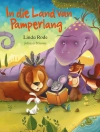In ‘The Pied Piper of Hamelin, ‘ Robert Browning weaves a captivating narrative poem rooted in the folklore of the German town of Hamelin. Through a vivid amalgamation of rhyme, rhythm, and rich imagery, Browning explores themes of betrayal, social responsibility, and the consequences of broken promises. His unique blending of playful language and darker undertones illustrates the complexity of human nature, set against the backdrop of a fantastical tale that resonates with deeper moral implications. The original illustrations further enrich this work, enhancing its visual appeal and inviting readers into a world where whimsy and caution intertwine. Robert Browning, one of the foremost Victorian poets, is celebrated for his mastery of dramatic monologue and psychological exploration. His interest in characters’ inner lives is evident in this narrative, where the Piper symbolizes both the allure and danger of charismatic leadership. Browning’s fascination with folklore, coupled with his social consciousness, likely inspired him to retell this cautionary tale, illustrating the repercussions of societal neglect and the allure of immediate gratification. This timeless poem is highly recommended for readers of all ages, as it not only entertains but also prompts reflection on the nature of promises and the ethical responsibilities we hold towards one another. ‘The Pied Piper of Hamelin’ remains an essential addition to any literary collection, inviting both enjoyment and contemplation through its eloquent verses and enchanting illustrations.
عن المؤلف
Robert Browning (1812-1889) was an influential English poet and playwright known for his mastery of dramatic monologue and psychological portraiture. Born in Camberwell, London, Browning was raised in a family that valued literature, and his upbringing was filled with books and learning, instilling in him a love for the arts that he would nurture throughout his life. He is lauded for his ingenuity in capturing the consciousness of his characters and the complexity of human psychology. Among his substantial body of work, ‘The Pied Piper of Hamelin’ stands out as an enduring children’s classic, melding folklore with his distinctive lyrical style and integrating original illustrations that capture the imagination (Browning, ‘The Pied Piper of Hamelin’). Browning’s opus spans from early works such as ‘Paracelsus’ (1835) to his renowned collection ‘Men and Women’ (1855), which contains some of his finest dramatic monologues, including ‘Fra Lippo Lippi’ and ‘Andrea del Sarto.’ His magnum opus, however, is often considered to be ‘The Ring and the Book’ (1868-1869), an ambitious 12-book narrative poem that illustrates his innovative approach to poetic form and his exploration of moral and philosophical issues. While Browning struggled with popularity during his early career, he eventually attained critical acclaim, and his work continues to be celebrated for its intellectual depth, its challenge to Victorian moral norms, and its pioneering use of narrative voice.












